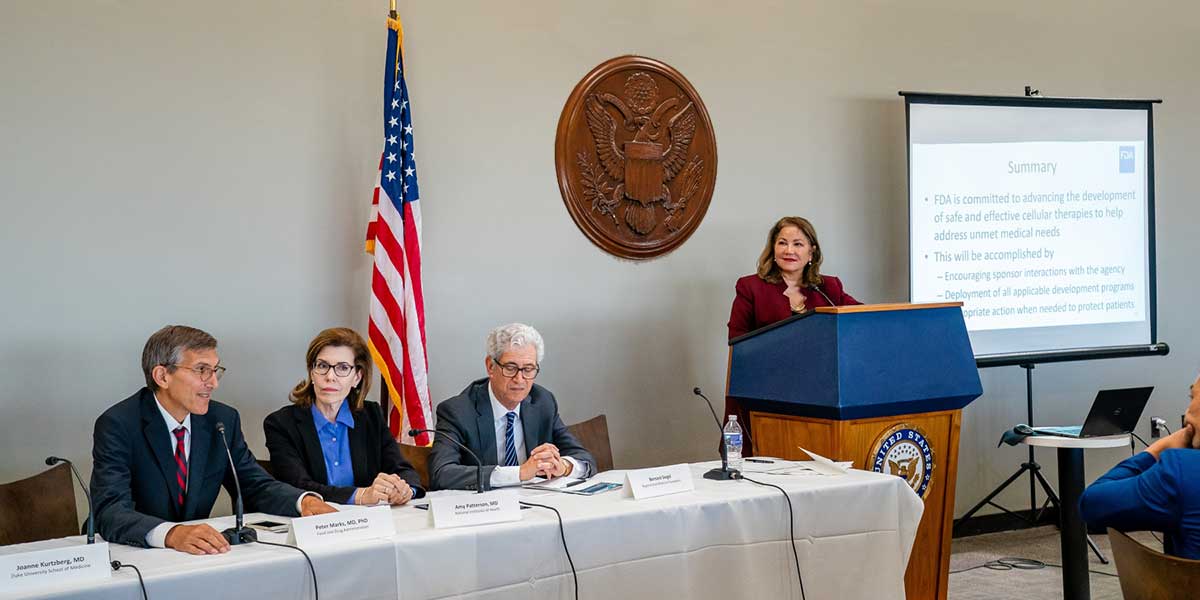Summary, September 2019 Capitol Hill Briefing –
It is not enough to just offer opinions about fixing the vexing bottlenecks that constrain regenerative medicine. We also need to advance strong public policy, funding and laws to advance the field and fully restore public trust. The Regenerative Medicine Foundation supports the policy recommendations advanced by the Alliance for Cell Therapy Now and remains fully aligned with the FDA’s efforts to protect the public.
The Alliance for Cell Therapy Now, a 501(c)6 organization devoted to advancing the availability of safe and effective cell therapies for patients in need, hosted a briefing in the Senate Hart Office Building on Capitol Hill on September 19, 2019, in collaboration with the Regenerative Medicine Foundation and the Cord Blood Association.
At the meeting, public and private sector leaders described the promise of regenerative cell therapies, as well as key imperatives for bringing both safe and effective treatments to patients in need. Key take-aways from the event are summarized below:
- Regenerative cell therapies represent the next generation of treatments that are showing great promise for patients in need. Several well-designed clinical trials are being conducted under Food and Drug Administration (FDA) approved investigational new drug (IND) protocols.
- At the same time, some clinics have caused patient harm or made questionable claims, taking advantage of vulnerable patients and casting a negative light on this promising field.
- The 21st Century Cures Act contained several provisions to make safe and effective regenerative cellular therapies available to patients. The FDA and the National Institutes of Health (NIH) are taking several steps to advance and support the field.
- However, a number of additional actions are needed to help bring safe and effective regenerative cell therapies to patients in need. They include:
- Gaining consensus on and driving adoption of both standards and best practices to support the development, manufacturing, and delivery of regenerative cell therapies.
- Developing and launching a national outcomes database or registry of regenerative cell therapies, to enable the capture of information about the cells and understand the correlation of cell characteristics with clinical outcomes.
- Significantly expanding workforce development initiatives, including those focused on technical and community colleges, to build capacity and develop a skilled, technical workforce for this growing field.
- As noted by private sector panelists, increasing capacity within FDA’s Center for Biologics Evaluation and Research (CBER) to support additional education, dialogue, and technical assistance for academic and research institutions, industry innovators, and practitioners, to support understanding of and compliance with new FDA regulations, as well as continued enforcement activities against those clinics that are causing patient harm.
- As noted by private sector panelists, increasing and sustaining federal funding for regenerative cell therapy research and clinical trials, to advance the science and the field.
Also, visit http://allianceforcelltherapynow.org/events/ for not only this report, but also speaker slides, bios, and a webcast of the event.




